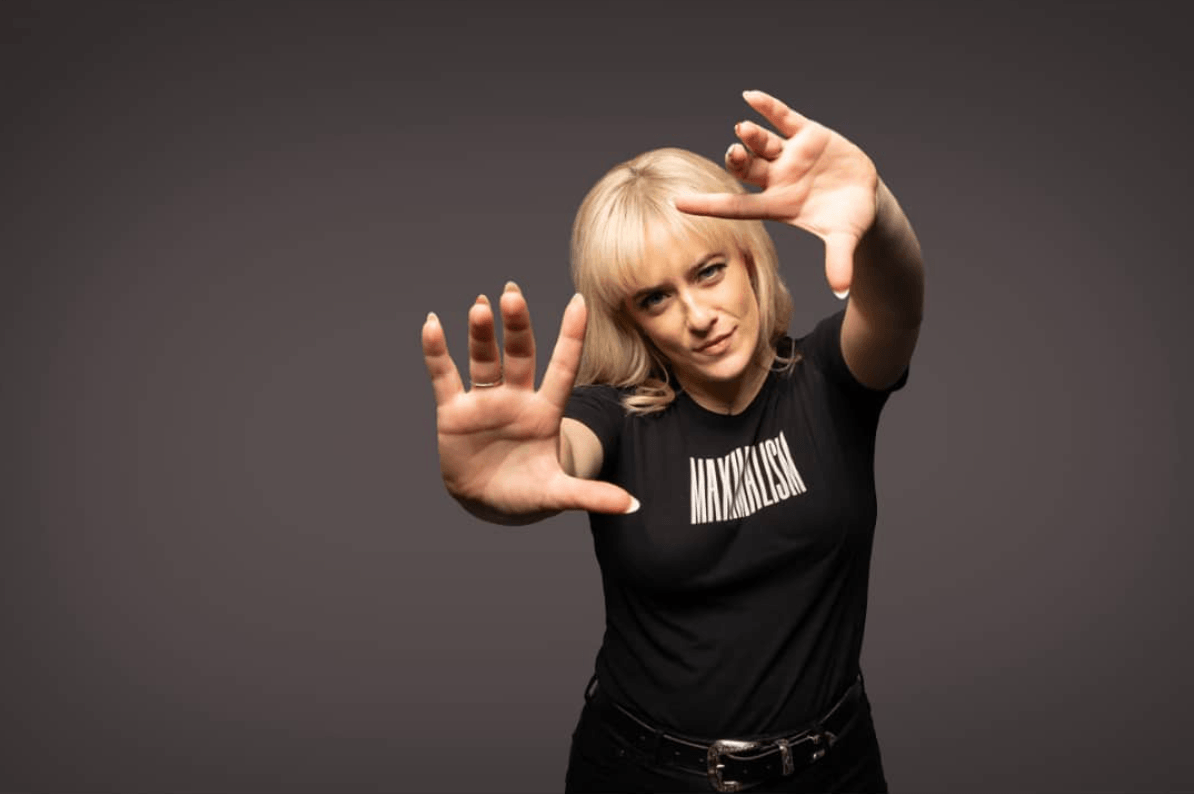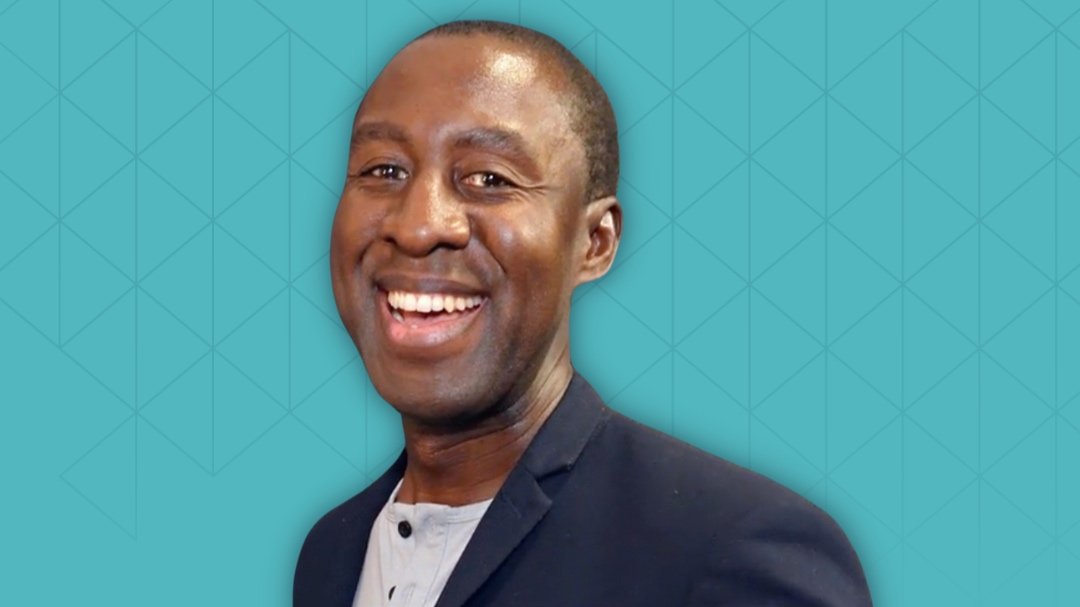Episode 72: How to Be the Go-To Brand in Your Industry with Hillary Weiss
EPISODE 72:
How to Be the Go-To Brand in Your Industry with Hillary Weiss
Does your brand express your point of view? Or does it just tell people what you do?
Today on the Work Less, Earn More Podcast, I was able to chat with Hillary Weiss. Hillary is a creative director position in coach and the founder of Statement Piece Studios. She's also the cohost of the cult favorite YouTube marketing talk show Hillary and Margo Yell at Websites (#HAMYAW).
She has also had her work featured on business insider the next web, the observer, and more since 2011, she's helped thousands of brands all over the world get seen and heard and to make serious cash through her one on one client work, writing, coaching and videos.
Nowadays she's on a mission to help more small businesses define their statement piece (A.K.A. the bold point of view that makes them radically different and relevant to their perfect people).
Tell me a little bit more about what you do and the work you do with your clients?
Hilary shared with me that she is a “Creative Director and Positioning Coach and what that looks like is the creative direction side of things. I work with six and seven figure business owners, to re-imagine their brand from the inside out by developing what I call the statement piece or a clear creative concept that threads through the entire brand.”
We came to learn that what Hilary does as a Creative Director is “totally unique” and “is expressed through the visuals, through the messaging and through the positioning of the brand.”
And what she does as a Positioning Coach is work with “creative business owners who are usually 3-5 years plus in their business” by helping them “develop their key, powerful, full position in the market.” Through her coaching she is “helping them define their clear specialty, develop their signature framework, and then thread that through their offers, their content, their messaging, their strategy, and more.”
Is the Positioning work a first step to get the foundation set up and then the statement piece is the advanced step?
Hilary said “the folks who come to me for creative direction, they're usually quite successful. You know, they have a brand that people know, but what's happening is all of a sudden the current brand no longer exists…but they want an update. They want to refine it.”“In some cases they want an umbrella brand that's going to be able to help them grow and expand in new ways. Positioning is similar to that, but it's really about helping these creatives show up for them...to kind of come out from under that Umbrella of client work and start actually building a brand for themselves as an expert, start doing the workshops, start making the courses and having a clear position.”
Does the positioning work help them become the go-to person in their industry? Then later when you're doing the statement piece work, that is when you're developing their brand with maybe multiple product offerings?
Hilary shared that “It's also doing the visuals for the brand, doing the brand strategy on the whole positioning.”
Her coaching focuses on how to “really position yourself or how one can position oneself as that go to person in their industry, how can we become that brand in our industry that people really look up to that they know like, and trust that when someone.”
What is your advice on how to become the go-to person?
Hilary said “I think that it's so important for business owners to realize that your business and expertise is what you do. Your brand is what makes you different from everybody else doing exactly what it is that you're doing. So I find that when it comes to branding, A lot of people take kind of a conventional approach.”
For example “They're like, okay, I'm a copywriter. I will help increase your conversions. I will help optimize your emails. I'm just using copy. Right? As an example, cause I was a copywriter for 10 years and when it comes to positioning, what it requires is actually a pretty deep level of self reflection. We want to become that brand.”
“Deep dive into your own point of view and perspective, right? The way you uniquely do things and what you're uniquely really good at. And also the way that you see things. And that often expands past just what are you doing day to day in your business, but it goes deeper into the kind of person that you are.”
“What are you known for in your day to day life? You know, what have you always brought to the table? What skills from who knows, when do you. Slip into the work that you do that makes it so extraordinary. Learn to study that and identify that. And the world is yours.”
What would that look like to actually do that?
One example Hilary shared was “Do you have a unique way you talk to your clients or questions that you ask that send those light bulbs going on? All of that has to do with your positioning. And a lot of it has to do with noticing, just starting to notice yourself, your patterns and your own thoughts.”
“Because I think in the business world, we kind of look to everybody else to tell us what to do, right and tell us what's good and what the next steps are. But in reality, the person we should be paying attention closest to is ourselves. And what's already happening naturally because that's where the absolute best of our brand and positioning lives.”
“You know, what are you doing every day? What are, what do you constantly think about, what are you always talking about with your clients? What are you always talking about with your colleagues start there because there's a lot of creative fire in who you want allied with or enemies with.”
“I think the allies piece is great. You want to align yourself with people who think like you, but the reason why I say again, start with nothing is just such a rich place to mine opinions and your point of view that you can then share. In your branding in your content, in your offers with your clients, which then attract like minded people and perfect fit clientele too.”
Ultimately, we discovered that it sounds like this is really all about taking a stance against ideas that you do not believe are serving your customers. You need to take a stand on things you believe and be a polarizing leader.
Tell me more about the concept of Enemies and Allies.
Hilary shared this is a concept she has learned but uses a lot in her business but went on to explain that “allies and enemies are groups you'd want to be not associated with and the groups that you do.”
“Like Susan Hyatt talks nonstop about Beyonce. So that would qualify as an ally for her, somebody she wants to be grouped with. Beyonce is known for excellence, being known for activism, being known for, you know, kind of giving the finger to convention in the name of her art and creating incredible things with it.”
To me it sounds like there's a really big difference though, between aligning yourself like Susan height, aligning herself with Beyonce versus me, aligning myself with someone else who teaches something really similar to me and offers a similar product.
What thoughts do you have any doing this is a business space with competitors?
Hilary said, “I think it's so important for us as brands, especially as personal brands, to also seek out others in the industry who share our ideals to cocreate with them, to share things with our audience about them and their audience about us.”
“Overall, I think we forget, we get so wrapped up in ourselves. Sometimes we forget that we should be pursuing people. Who think like us, if they're at our level, especially because that gives us a way to swap ideas, to amplify the message.”
How can we become the go-to brand in our industry?
She said that we needed to start “thinking about what are the compliments that you hear from your clients over and over again? Not just about the quality of your work. What about you as an individual?”
What advice would you give to someone who says that they don't really feel like there's anything that makes them stand out?Hilary shared that she tells “folks who come to me with this problem, that being able to develop your own brand, being known in your industry is also an insurance policy in a lot of ways, because it allows you to escape the referral only kind of hamster wheel.”
“It means you're showing up as an authority in different ways and being put in front of more and more people as you're daring to put yourself out, out there and those are experiences you just can't have. If you're spending your days stuck in the client work zone exclusively and not creating or showing up for yourself in any way, perfect.”
If someone wants to become this go to brand in their industry, what would be the first, like five or six really practical steps that you would suggest that they take?
Hilary said “I think the most important thing is to define the vision. Where do you want to go? Like, what do you actually want? I find a lot of, especially with my positioning coaching clients, we'll have that first call when we're talking about vision and they'll be like, well, I don't know if I want to be doing what I'm doing anymore. I think I might want to do this.”
Hilary talked us through step two which is to “take a really good look at the way you do things. I'll give you guys a little exercise that I do with my coaching clients, which is where I have them write down their process for working with every client and not just every step of the process from sales call to final delivery, but why they do it?”
“What is happening in their mind as this is going on? What are they looking for? What are they listening for? What do they hope to put together? Because that's going to pull out details of your really awesome and unique approach.”
Then, “step three would be sitting looking at all of this, with the vision, with where you want to go with your framework, with your approach. What do you really want to be doing right now? And that's deciding your specialty exploring where you might want to plant your flag in the ground and where you can spot.”
Next, “step number four is when you start solving those problems in public. I encourage a lot of my clients right now to use Instagram. If I have to pick a platform just because I found it to be an incredible, an incredibly active space for buyers and for sales convert for like very authentic sales conversations.”
Hilary gives them the rule to “post two or three times a week stories every day, if you can.”
The fifth step is to “do an audit. Are you in your zone? Do your current offers line up with the way that you want to be living your life, as well as doing your job? Usually for a lot of my clients that looks like so much simplification. An offer that embodies what their followers admire so much about them. It creates so much excitement. So go ahead, review your offers and don't be afraid to experiment a little”
“I spent three years creating a course that I ran $10,000 that I retired 18 months later because I was like, wow, this is not it. I find that so paring down as well as hugely important because it helped people to kind of glom onto and fully understand the value conversation in a really big way as well. So it's often that simplification piece that weird strangely enough really begins to drive sales again.”
“If you have an offer that you love that isn't selling, you should figure out what you really like about it and take that part and then re-imagine the offer. But first you should try to sell it before you do any of that.”
Let's say someone is being pretty active on social media. They have their business basically built. They're being pretty active on social media.They're posting on Instagram multiple times a week, maybe even every day but they're just hearing a crickets.
What is the most common mistake that you see people making with their brand positioning that's causing people to just not respond to not really be interested in what they have to offer most common mistakes?
Hilary said “First of all, if you're not using hashtags, y'all start using hashtags. One thing I will say from a technical side of things is if your Instagram is crickets often, it's because you are also not interacting with other accounts, you're just showing up and posting the thing and being like.”
“It's like any other social platform you get out of it, what you put into it. So you need to be also following other people, commenting on other people, basically treating them the way you'd want to be treated. The second thing I also find is that people are so concerned with their Instagram often looking perfect or playing it safe with their content that it's not making any splash or not.”
“We're concerned with the perfect design and we want the color scheme and everything wants to look immaculate, but that's actually not really necessary. Human beings want to connect with other human beings. We want to know your ideas. We want to see you try new stuff. We want to see you take us on a journey so we can explore. So focus on that as opposed to creating the perfect flat line and see what finishes.”
I loved getting to chat with Hilary on the podcast this past week. If you want to connect with her you can find her at hillaryweiss.com. You can also grab her Statement Piece Framework at hillaryweiss.com/statementpieceframework
Are you ready to finally take the leap to six-figures?
Let's turn your inconsistent income into consistent $10K+ months. We'll show you how and guide you through the entire process.
Your business (and life!) will never be the same.
Show notes + links:
LISTEN TO THE FULL EPISODE TO HEAR:
Why your business and your brand are not the same thing
Why starting with “nah” can unleash creative energy that refines your point of view and leads to perfect-fit clients
How getting vulnerable will make your positioning stronger
Five practical steps to begin refining and building your unique position













